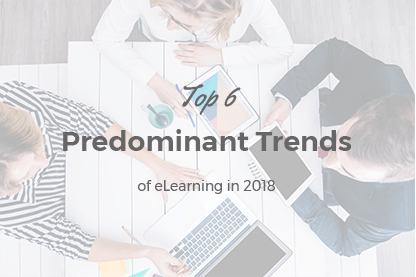The most recent statistics show that there are currently more than 237 million mobile users in the US, with a tendency to scale that number all the way to 270 million users by 2022. Such a vast amount of users surely brings forth certain changes in the way we communicate online, as more and more online content is provided for mobile platforms. But will it affect the way we learn new skills and obtain work-oriented knowledge? The answer is pretty clear if we take into account how many other desktop platforms shifted their course toward mobile devices. The benefits of mobile learning give us enough reason to believe that soon e-learning is going to become more practical, approachable, and economical.
Time consumption
Learning new skills takes time, and when it comes to work, time is an asset we are not allowed to waste. E-learning, just like any other learning process, requires some basic conditions that need to be met. Time is one of those conditions, and mobile learning is allowing people to manage their learning process with a high level of efficiency.
Imagine an employee taking time from his or her work in order to go through a new training course. The employee needs to be by the desk during the work hours and dedicate a certain amount of time that could influence some of the work to be delayed. Instead imagine a person learning while walking down the stairs to get some lunch, or while on a coffee break. Finally, how about while commuting back home from the office? With mobile learning, employees are able to go through their training courses any time they choose, because the only limitation is the amount of battery that's left.
Augmented reality on the go
Clicking through series of slides and reading a daunting text about new techniques, approaches, and procedures can really become annoying after a while, not to mention that sometimes we need a more practical approach while learning. All of the above are some of the reasons why it's sometimes difficult to keep employees motivated for e-learning. However, mobile learning has an ace in its sleeve when it comes to making training lessons more approachable and interactive. Augmented reality is a technology that allows software to superimpose digital media over the user's view of the real world. So how does it help us obtain new skills easier? Well, think of an employee getting his hands on a new set of tools. With a simple scan via mobile device employee could gain access to multimedia content that shows detailed instructions on how to operate with new tools, their proper handling, and maintenance. This means that you don't need to plan and schedule training sessions, instead just allow the worker to learn wherever, whenever he or she is able to dedicate some time to this endeavor. In addition, interactive visual engagement makes the learner feel more comfortable while learning. This is something that desktop e-learning systems have a difficult time competing with, as mobile platforms offer a higher level of flexibility in terms of time and place. m-learning saves money
We have already mentioned earlier in the text that training sessions cost money. The educational materials don't come cheap, working hours spent on training don't mean that the training would be successful, and there are seldom chances to train from home. With mobile learning employees don't even have to spend time training while "on the clock". A train, a bus, an airplane, even a sofa can easily become training rooms when everything we need is in the palm of our hand. Downloadable materials allow offline learning process which allows employees to take training sessions as many times as they need until they master their lessons. Simply put, with m-learning you can cut costs while improving performance.
Conclusion
The time of sitting behind the desk while working might become obsolete very soon. Mobile devices allow better use of our time and space, while the productivity rises. Employers need solutions that have a high ROI ratio and yet remain simple to implement and don't require a vast amount of financial investment. Mobile learning allows easier, more efficient, and quicker training process while the trainees are using a device that they are feeling more comfortable with.
Mark Thomson is a head editor at assignment writing service. He is an ambitious e-learning enthusiast, who dedicates most of his time to share his passion with everyone. A huge mobile learning supporter with extensive knowledge in this field, which allows him to create influential content for his readers.









